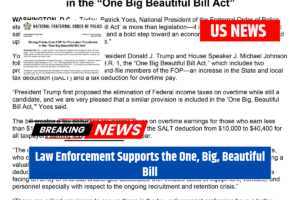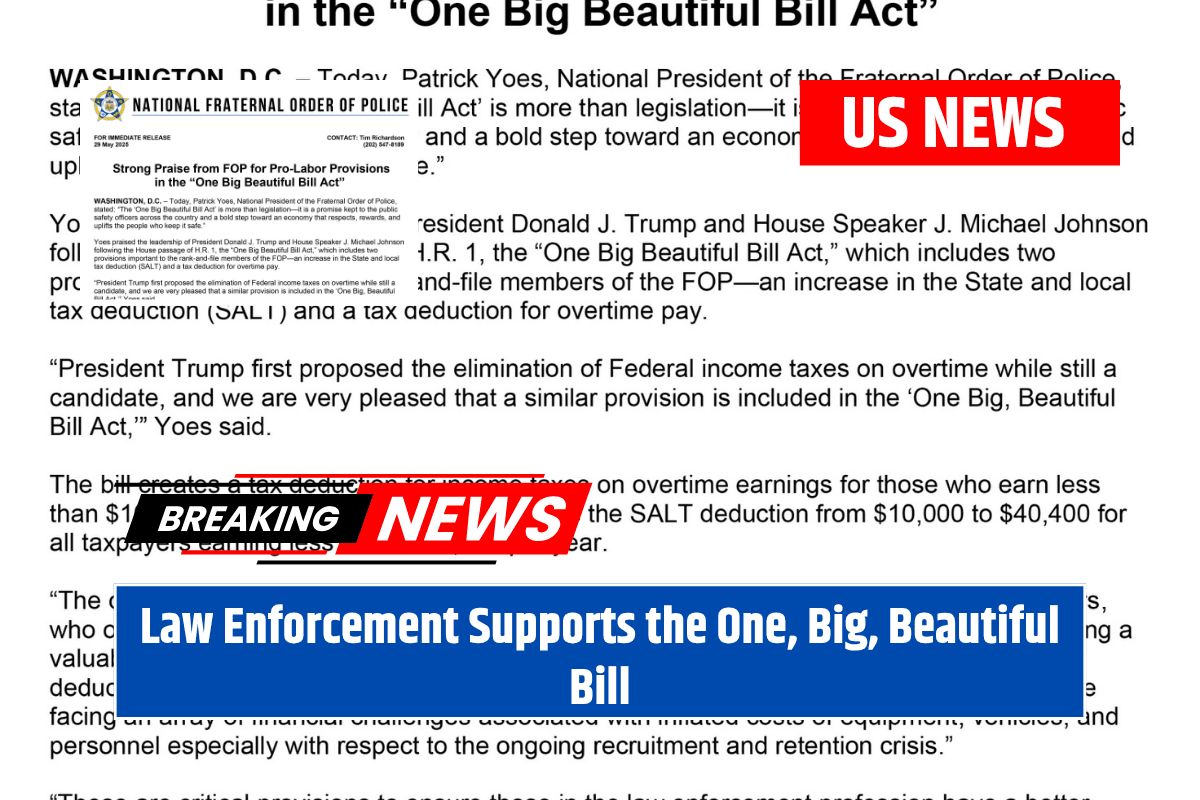A new proposal from GOP House Republicans aims to give every newborn in the United States a $1,000 investment account, called “Trump accounts.” This plan is part of a bigger effort to help families build wealth early and improve economic opportunities across generations. It is considered a key idea for a possible second term for Donald Trump.
What Are Trump Accounts?
The accounts, first named “Money Account for Growth and Advancement” (MAGA), have been renamed to include Trump’s name. The plan would create federally managed investment accounts for babies born between January 1, 2025, and January 1, 2029. Every eligible newborn would get $1,000 from the government invested in the stock market, with the option for families or others to add up to $5,000 per year.
Who Is Eligible and How Does Enrollment Work?
Every child born in the U.S. during the plan’s timeframe would be automatically enrolled. Both the child and their parents must have valid Social Security numbers. The U.S. Treasury, working with banks or investment firms, would manage the accounts. Automatic enrollment aims to help families who might not be aware of such programs, especially those with low incomes.
How Does the Investment Work?
The $1,000 federal contribution would be invested in stocks, potentially growing over time. Additional contributions from families or others could increase the account balance. However, the final amount when the child reaches adulthood will depend on how much is added and how the market performs.
Some states have similar programs but with smaller initial contributions and matched funding from the state, such as Colorado’s program, which offers $100 at birth and matches up to $500 per year for five years.
What Can the Money Be Used For?
Withdrawals would be limited to wealth-building uses like paying for college, buying a home, or starting a small business. At age 18, account holders could access half the funds for approved purposes. The rest would become available between ages 25 and 30 for those uses, and after 30, the money could be spent on anything.
Taxes and Withdrawal Rules
Money used for approved expenses would be taxed at the lower long-term capital gains rate. If spent on other things, the withdrawal would be taxed as regular income and could include a 10% penalty. Critics warn this could hurt low-income families who might need the money for emergencies and end up paying penalties.
There are suggestions to create exceptions for emergencies to avoid unfair penalties.
What Are the Concerns?
Experts question how much tax advantage these accounts really offer. Unlike 529 education savings plans, these accounts might work similarly to taxable brokerage accounts. Still, supporters say any investment growth for newborns is better than none.
A study shows many Americans can’t handle a $1,000 emergency, so limiting access to the money could be a problem. Emergency withdrawal exceptions might help fix this issue.
The Trump accounts proposal is a new approach to help families build wealth from birth through federally managed investment accounts. While the plan offers promise, it also faces challenges like tax questions, withdrawal penalties, and how much the money can grow. The idea is still being debated and would need more details and changes before becoming law. If done right, it could help many families plan for their children’s futures.
FAQs
What are Trump accounts?
Trump accounts are federally managed investment accounts with a $1,000 contribution given to every newborn in the U.S. between 2025 and 2029 to encourage early wealth building.
Who is eligible for a Trump account?
Every child born in the U.S. between January 1, 2025, and January 1, 2029, with both parents and child having valid Social Security numbers, is automatically enrolled.
How much money will be in the Trump account initially?
Each newborn would receive an initial $1,000 federal contribution invested in stock market portfolios. Families can add up to $5,000 per year.
What can the money in Trump accounts be used for?
Funds can be withdrawn for wealth-building purposes like college tuition, home purchases, or starting a small business, with specific age and usage rules.
Are there tax benefits or penalties associated with Trump accounts?
Withdrawals for qualified expenses are taxed at long-term capital gains rates, while non-qualified withdrawals are taxed as ordinary income with possible penalties.
What concerns exist about the Trump accounts plan?
Concerns include tax disadvantages compared to other savings accounts, potential penalties for low-income families withdrawing early, and limited growth without additional contributions.













